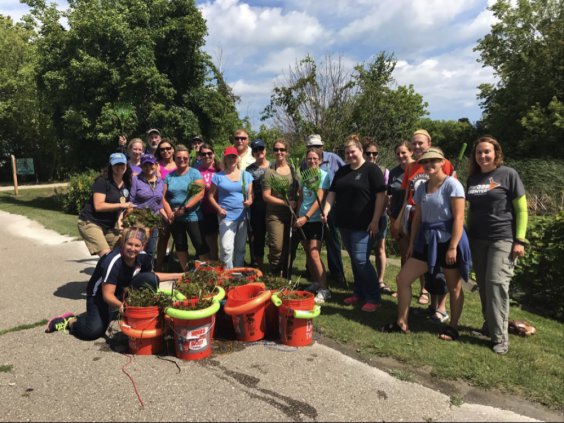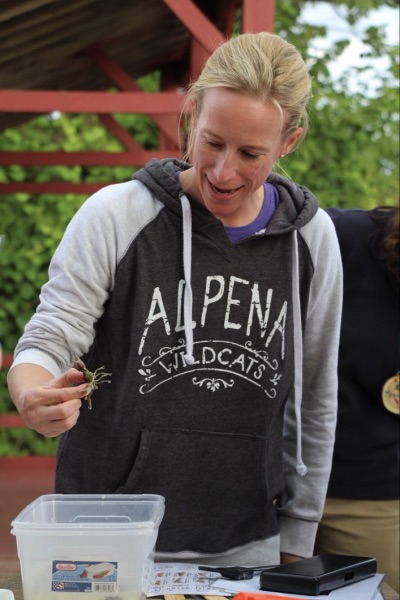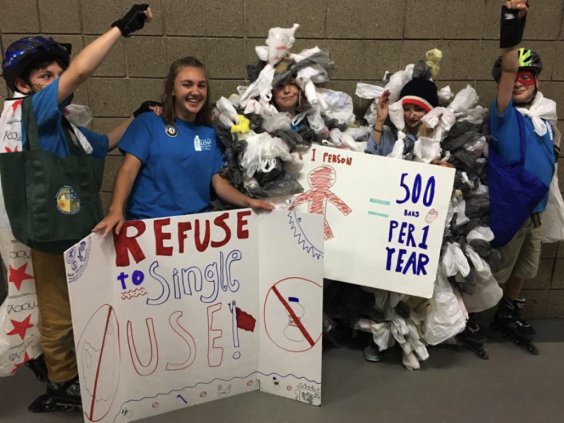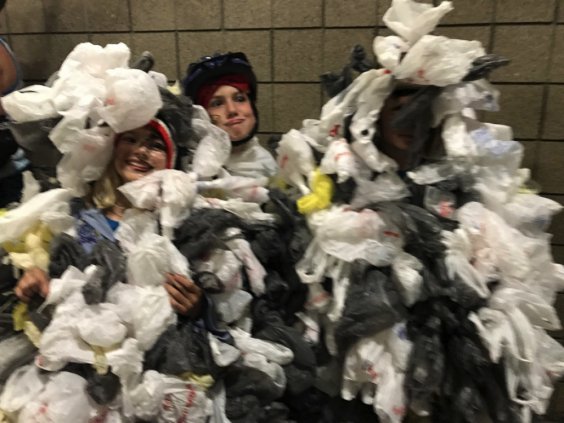ULIEA Winner Update: See How NEMIGLSI Is Connecting People To The Great Lakes All Summer Long
From an annual teaching-the-teacher institute to beach cleanups, this past ULIEA winner has been busy all summer furthering E-STEM youth education.
All of our past ULIEA winners are hard at work continuing the good fight for more youth E-STEM education. One winner, the Northeast Michigan Great Lakes Stewardship Initiative (NEMIGLSI), is a perfect example of this continual excellence and commitment. Their network of regional education and community partners regularly collaborate to provide local youth and educators with hands-on learning opportunities with the ultimate goal of protecting the Great Lakes and northeast Michigan's natural resources. This summer has been no exception. Read on to discover what this game-changing network has been up to this season.
Bringing Great Lakes Literacy into Michigan Classrooms
The NEMIGLSI network recently hosted its eighth annual Lake Huron Watershed Place-based Stewardship Education Summer Teacher Institute from August 14-17 at Thunder Bay National Marine Sanctuary's Great Lakes Maritime Heritage Center in Alpena, MI. The Great Lakes Restoration Initiative, Sea Grant Center for Great Lakes Literacy, and the Great Lakes Fishery Trust helped fund the four-day professional development opportunity that brought together 15 Michigan educators to learn how to connect their students to the Great Lakes through place-based education. Place-based education is connecting students with their communities to address real issues while meeting Michigan's education standards.
Over the four days, participants gained knowledge and relationships that will help their students better protect the Great Lakes. "Here in Michigan, wherever you are in the state, our waterways connect back to the Great Lakes, so it's really important to learn about how, as humans, we can have an impact and then ways we can better help our community," said NEMIGLSI network coordinator Meaghan Gass, in an interview with local news channel, WBKBTV.
Teachers also participated in native pollinator garden tours (developed by area students), the Alliance for the Great Lakes Adopt-a-Beach clean ups, monitoring water quality, rusty crayfish population density studies and other activities to drive home the connection between human action and conservation. Upon completion, teachers received a $500 project stipend to help them implement the place-based stewardship education efforts in their classroom.
The participant response was overwhelmingly positive. One teacher summed it up best, "This was the first I have heard of place-based learning. The small group setting, knowledgeable presenters, and wide variety of documents, information, stories and hands-on projects (completed by previous teachers) gave me the tools to design an effective activity that meets cross-curricular standards for my own students. This is meaningful to me because I love my students - I care that they grow to be well-informed, good citizens - and I care about my state and our natural resources - I want to help others find ways to protect our watershed."
The network is already planning for the 2018 year. Be sure to follow NEMIGLSI on Facebook for 2018 Institute enrollment updates, or create an account at www.nemiglsi.org to join their mailing list.
Reducing Single-Use Plastics with Network Partner, Plastics F.L.O.A.T 4-H
During the school year, NEMIGLSI partners with local schools to connect students to the Great Lakes, but in the summer, they work with informal education groups like 4-H and summer camps to lead fun projects that promote protection of natural resources. One such group really stood out this year: Plastics F.L.O.A.T. (For the Love of Alpena Today) 4-H Club. Connected through the NEMIGLSI network Plastics F.L.O.A.T. 4-H works to raise awareness about the danger of single-use plastics for our Great Lakes and ocean.
Over the summer, Plastics F.L.O.A.T. 4-H club members engaged their community in litter cleanups like Alliance for the Great Lakes Adopt-a-Beach. These public events bring community members together to pick up litter and tally the common types of debris.
The club also attends local events to help educate the public on the dangers of plastic bags and strategies to reduce plastic-bag usage - like how to make reusable bags of out t-shirts. (Americans use an average 500 single-plastic bags each year. WOW.) Watch these Plastics F.L.O.A.T. 4-H "Bag Monsters" in action performing at a roller derby bout!
This fall, Plastics F.L.O.A.T. 4-H will hand out reusable bags at local grocery stores if community members sign the pledge to refuse to single use.
Interested about single-use plastics? Like plastic bags, single-use plastics are especially dangerous since they can break down into smaller pieces, or photodegrade due to light and UV radiation, in water. These small plastics absorb pollutants and can enter our food web. Learn more about plastic and what you can do to help by watching another NEMIGLSI network partner's film (developed by Bob Thomson's 5th grade class from Ella M.White Elementary School): Plastics 101.



